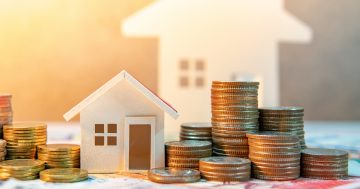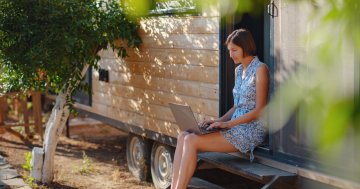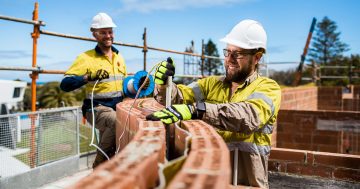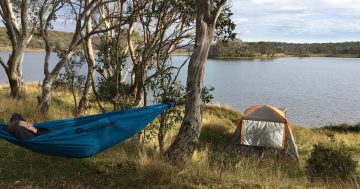Kristin Wong* says when buying a home, it’s important to factor in the various upfront and ongoing expenses over and above the sale price.
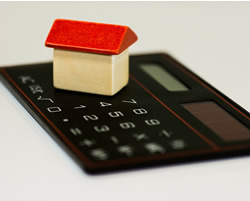 Your home is probably the most expensive thing you’ll ever own – and that expense goes beyond the closing price.
Your home is probably the most expensive thing you’ll ever own – and that expense goes beyond the closing price.
There’s the cost of the house, but then there are other ongoing and upfront expenses that can catch you off guard.
Especially if you’re a first-time buyer, it helps to know what you’re getting into.
Realestate.com.au estimates the extra costs of buying a $500,000 home in Australia to be $11,540 to $14,050.
Some of these costs aren’t exactly ‘hidden’ but they are commonly overlooked.
Home inspections
Inspections will be your first major expense.
Before you officially close on your house, you’ll want to schedule a thorough inspection.
At a minimum, you want to order a general inspection of the house and an inspection for termites, if that’s not included in the general.
Depending on the age and condition of the house, you may also want to schedule a sewer inspection.
All of these can add up to over $1,000, but that’s a small price to pay to make sure you’re not getting a lemon.
If the house requires a hefty amount of maintenance, you might renegotiate with the seller, pull out of the deal completely, or simply budget for the added expense.
Even if another party has previously had the property inspected, it’s always a good idea to get your own inspection.
Closing costs
After your offer is accepted, your lender will crunch some numbers and run the paperwork.
At this point, they should give you a detailed list of what your closing costs are.
Closing costs can run you an extra 2 to 5 per cent of the home purchase price.
Here’s what these costs usually include:
- Lender fees: These include everything from administrative costs to bank transfer fees.
- Appraisal: The home appraisal can be a big expense, at several hundred dollars. The lender wants to make sure the home appraises for the sale price.
- Title or solicitor fees: Government filing fees and any other expenses associated with transferring the deed over to you.
- Escrow fees: You might be required to pay some of your property taxes and insurance into an escrow account upfront.
- Interest: You’ll have to pay interest that’s prorated from the date of your closing to the first of the following month.
You can always plug some numbers into a closing cost calculator to get a bit more specific idea of what you’ll pay, but in general, expect to spend several thousand dollars on top of your down payment when you close on your home.
Budget for ongoing taxes and insurance
Monthly mortgage calculators tell you what your mortgage payment, including interest, will be each month.
They don’t always include the taxes and insurance, though, and that adds up.
Then there’s mortgage insurance, which you generally have to pay if your down payment is less than 20 per cent.
That can range from 0.5 to 1 per cent of the cost of your loan.
Of course, your taxes will vary depending on the value of your home and where you live but will likely be several thousand dollars.
However and whatever you pay, make sure to budget for this ongoing, recurring cost.
Keep funds on hand for maintenance and repair
When your airconditioning dies as a renter, it’s a pain, but all you have to do is call your landlord and hope for the best.
As a homeowner, it hurts a little more because you have to pay for the repair yourself.
Most people know owning your own home means forking over the cash for your own maintenance, but you might underestimate how much these projects will run to.
Leaky taps and cracked exterior paint are just a few repair projects that catch most first-time homeowners off guard.
Every home is different, so there’s no one-size-fits-all answer for determining how much you’re going to pay on maintenance every year.
It’s almost always a good idea to err on the side of caution though, so it can’t hurt to have about 4 per cent of the purchase price budgeted for repairs each year.
For a $200,000 home, that’s about $8,000.
It seems like a lot, but even if you don’t spend that money, consider it an emergency fund for your home.
Prepare for higher utility bills
Let’s say you moved out of your cramped apartment and into a nice three-bedroom home.
Elbow room is great, but it also means your bills will be a little higher.
Depending on what you’re used to paying, your gas, electric and water bills won’t necessarily be higher when you buy a home, but they often are.
Plus, your landlord might have paid the bill for some expenses (such as water) that you’ll have to pay when you own.
Homeowners pay a couple of thousand dollars extra on utilities every year, compared with renters.
To get an idea of what your own situation will look like, home site Money Pit suggests asking the seller if you can take a look at their past bills.
Use this information as a guide, remembering that year-to-year changes in weather and energy use patterns by a new combination of residents will lead to variations.
You could also order a home energy audit.
This basically involves an auditor inspecting your home to tell you how to improve its energy efficiency.
This will run you several hundred dollars, though.
You can do a general one yourself by checking your insulation, looking for air leaks and possibly replacing some appliances and A/C systems.
Buying a home is traditionally thought to be a smarter financial decision than renting.
However, all of these extra costs add up.
So, once you make your decision to buy a home, be prepared for the price you’ll really pay.
Factor in these expenses, and you should be on track.
* Kristin Wong is a freelance writer. She tweets at @thewildwong
This article first appeared at www.lifehacker.com.au


